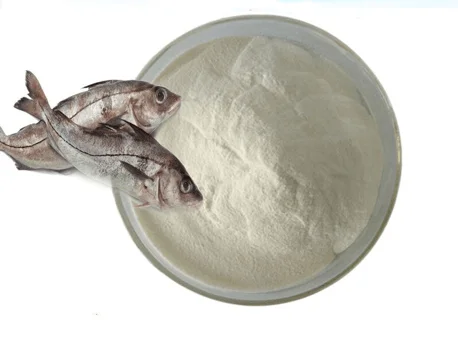Collagen is the most common protein in our systems. Proteins are the structural blocks of the body. They’re made up of amino acids. Peptides are made up of amino acid chains, and large proteins like collagen are made up of numerous peptide chains (polypeptides), which are often twisted in a certain way.
Collagen is the most prevalent protein in our skin and is also present in other tissues (for example, bone and cartilage). After the age of 25, both total collagen and collagen in our skin and bones begin to diminish. This is a normal part of the ageing process, and it causes the affected organs and tissues to lose physical integrity and work less efficiently. Those who have an unhealthy lifestyle (especially smokers) and consume a poor diet are more likely to lose collagen at a faster pace.
With the loss of collagen, the skin thins, becomes less resistant to physical stress and strain, and is less resistant to UV radiation from the sun. Simultaneously, ageing skin loses elastin and hyaluronic acid, both of which are necessary for the skin’s suppleness and hydration capacity. Concurrent loss of these three important components of the skin manifests as the symptoms of ageing skin – thin, wrinkled, sagging, dry, and insufficiently elastic; and commonly covered with age spots, moles, and skin tags produced by UV exposure. The most seriously sun-damaged skin is also at risk of developing numerous types of skin cancer.

The optimal strategy for creating and maintaining skin health and youthfulness, as well as postponing the impacts of skin ageing, is to guarantee that all three are present at appropriate levels. Collagen supplements have been used for many years to try to prevent or reverse skin ageing since collagen is the most crucial of these components. Scientific study on the beneficial effects of collagen on ageing skin has indicated that collagen may restore the skin’s thickness, strength, integrity, elasticity, hydration, radiance, and overall health. It is also highly healthy and helpful in the healing of wounds. It may even assist in the eradication of cellulite and stretch marks. There are various more advantages for the other organs and tissues as well.
One of the issues raised by people who use collagen supplements is that some of them gain weight. As a result, it is vital to understand that not only are there numerous types and qualities of collagen, but there are also several other components that are added to collagen supplements. And, if these individuals gained weight, we must discover which element of the supplement is to fault.

First, let’s look at collagen. Collagen is a protein, and proteins provide the same amount of energy (4 kcal/gm) as carbohydrates. Therefore, eating 1 bowl of collagen on a regular basis may result in the same weight gain as eating 1 bowl of rice (300gm). Nevertheless, you are unlikely to consume that much collagen. Even if you take 20 grammes of collagen per day, the calories are only comparable to 1 heaping tablespoon of rice. Because most people only use a few grammes of collagen supplements each day, the calorie amount is unlikely to promote weight gain.
The second question is if collagen increases your appetite and encourages you to eat more. No, it does not. In actuality, it has the opposite impact. Collagen can genuinely aid with weight loss. Its particular amino-acid content and peptide structure make it both satiating (removing hunger and delivering a sense of fullness sooner and longer) and appetite suppressing. According to research, collagen ingestion promotes satiating hormones, causing test participants to eat less at the next meal. As a consequence, consuming collagen should aid you in eating less and losing weight.
Third, does collagen make you gain weight? Again, the answer is definitely no! Collagen, on the other hand, assists in fat reduction while retaining lean body mass. Exercising and lifting weights can also help you create bigger muscles and stronger bones faster. It is excellent weight gain if you gain weight owing to greater muscles!

Third, does collagen make you gain weight? Again, the answer is definitely no! Collagen, on the other hand, assists in fat reduction while retaining lean body mass. Exercising and lifting weights can also help you create bigger muscles and stronger bones faster. It is excellent weight gain if you gain weight owing to greater muscles!

Some low-quality, low-cost supplements include a high amount of sugar. For instance, a popular collagen supplement has 15gm of sugar every 25gm sachet of product. That equates to 3 teaspoons of sugar every sachet. There is just about 2.25gm of protein in total. The collagen content is not specified; nonetheless, it is most likely minimal. A low-cost supplement is uncertain to contain high-quality collagen. Instead, you’re getting sugar with a hint of collagen. Other ingredients (other than collagen or sugar) may occasionally increase appetite and cause weight gain. Fats can also be a concern if added to the supplement, although this is rarely the case with collagen supplements.
To get the most out of your collagen supplement while preventing weight gain, seek for one that has high-quality, bio-available collagen. Choose hydrolyzed fish collagen for skin health. Hydrolyzed fish collagen is readily digested, resulting in smaller peptides that are absorbed. These are then made available for cells (especially fibroblasts) to create new collagen fibres. The best product is one in which the hydrolyzed collagen has already been broken down into smaller peptides, removing the need for digestion. Enzymes can be employed to do this in the plant.

Fish collagen is predominantly “type 1” collagen, which is found throughout the body. Thus, consuming more fish collagen benefits the skin, as well as the joints, vital organs, blood vessels, metabolism, and bones. Because collagen formation and function need the presence of several cofactors (vitamin C, minerals, and others), it is ideal if the collagen supplement contains them. And if hyaluronic acid (which helps the skin regenerate even more) is included, the supplement is complete. Heavy metals, bacteria, synthetic hormones, preservatives, melamine, and marine pollution must be avoided in the supplement (dioxin).
Lastly, it should have a pleasant flavour so that it is enjoyable to consume.
D-VINE is the collagen supplement that satisfies all of these needs. It is made of Korean high-tech enzymatically produced hydrolyzed fish collagen. Collagen peptides are small (around 1000 Daltons in size) and quickly absorbed by the body and collagen-producing cells. Because of its excellent absorption, the recommended daily quantity of two chewable tablets is as effective as 4 times the dose of other collagen products. It includes vitamin C, antioxidants, minerals, and phytonutrients, all of which function as cofactors for collagen. The chewable tablet (candy) tastes like strawberries, and chewing it is straightforward and enjoyable. Each tablet contains a high concentration of bioavailable hydrolyzed fish collagen peptides, minimal carbohydrates, strawberry and other fruit powders, sweetener, and no refined sugar.
Click here to learn more about D-VINE Collagen.






